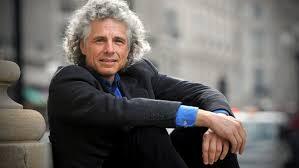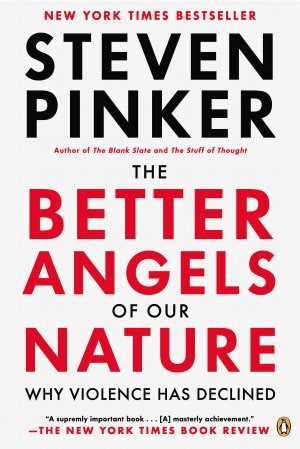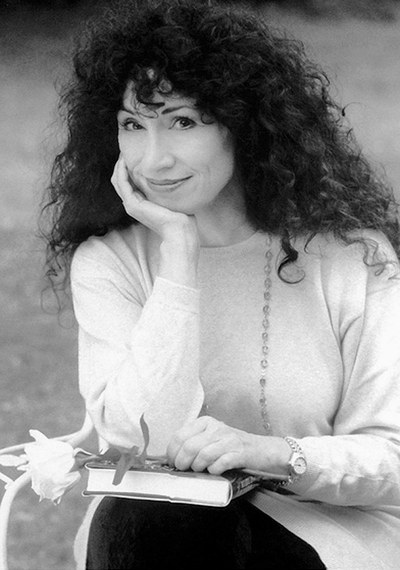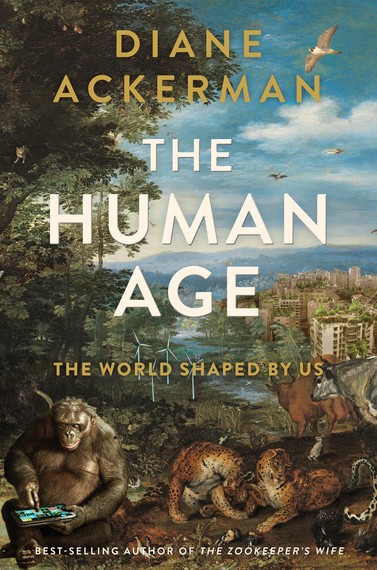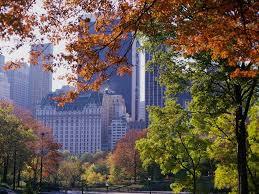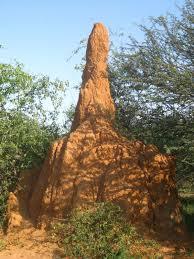Whenever I hear some inane person insipidly declare, "I prefer animals over people," I immediately go into a Dickensian and Curmudgeon-ian mood and mutter not so under my breath, "If I could work my will, every fool who goes about with 'I prefer animals over people' on their lips would be stripped naked and plopped down in the middle of the Amazon forest." But then, I am a Homo sapiens chauvinist (as I confessed several years ago in a speech discussing my science fiction satire, Traveling in Space, and posted here on the Huffington Post).
Don't assume that by being a Homo sapiens chauvinist, I am anti-animal. I am not. I love animals. I dote on our current family cat--although I was not terribly fond of several previous family cats. I love dogs--as long as they are owned by other people tasked with picking up their poop. I used to watch a lot of nature documentaries--until I realized that often they were just films showing animals hunting, gathering, eating, sleeping and copulating. Animals don't seem to do much else. Except, of course, for domestic animals, which we have turned into beasts of burden, living objects d'art, affection sponges and meat.
Being a Homo sapiens chauvinist is a positive position, not really anti-anything (except for certain mythic Lords of the Sky, those wisps of smoke and mirrors that seem to have a majority of Homo sapiens in thrall), but rather just pro-humanity. I am loyal to, and a booster of, our species, refusing to fall into the trap of pissing and moaning and bemoaning and beating my hairy chest because we have often spoiled this planet with war and environmental degradation and professional sports. (I know I pretty much stand alone in that last item listed, so the reader may substitute one of their own). And I can't help but harbor the suspicion that people who run around saying that humans--unlike animals and trees and the gentle breeze--are an unnatural plague upon this beautiful blue planet, are actually saying in sub-text, "But, of course, as I recognize this and point it out to you I am, obviously, not part of the plague, I am, indeed, a kind, wonderful, and compassionate person lovely to look at and a pleasure to be around."
I often, sadly, find myself surrounded by such people. Where is a lonely Homo sapiens chauvinist to turn? Well, here's a couple of books I've been able to turn to lately that took me in and comforted me quite nicely. One I will briefly mention; another I'll elaborate on.
In 2011 the curly-headed experimental psychologist and cognitive scientist (And linguist, so I better watch what I say) Steven Pinker published The Better Angels of our Nature: Why Violence Has Declined.
It is a very heavy (unless you get the ebook edition, of course), 800-page book full of facts and figures and charts. It has just been chosen by Facebook's Mark Zuckerberg for his "A Year of Books" book club. It is a long journey to traverse, although Pinker is a great traveling companion. It is complex, deeply investigative, and detailed, and yet it has a simple message: Hey, people, we're not as bad as we used to be; and we're not as bad as you think, in fact, we're getting better every day. The Better Angels of Our Nature details the maturation of our species (also a theme in Traveling in Space), and is essential reading for anyone who takes our life in this universe seriously.
Last year poet and naturalist Diane Ackerman published The Human Age: The World Shaped by Us, making the up-front declaration with that title that, like it or not, we are now living in a new human dominated age. Scientists have dubbed it the Anthropocene to acknowledge that since the industrial revolution, or possible since the introduction of agriculture, but certainly since one or the other, we Homo sapiens sapiens--our true name--have radically altered the, "entire natural world." Which certainly entitles us to naming rights. But does it entitle us to bragging rights? Many people think not, many people decry our alterations of nature as if we were the dreaded space aliens of science fiction paranoia. Ackerman, while not ignoring the harm we have done, has, I believe, a clearer view of us not as some outside force acting detrimentally upon nature, but an integral part of nature, naturally exploring, building, discovering, shaping, improving, albeit with missteps now and then. But the glory of us natural beings is that we call ourselves on those missteps, and are the only creatures on this planet with the intelligence to correct them.
Ackerman is no Pollyanna in this view. She might not even join me in being a Homo sapiens chauvinist, although I would be delighted if she did. She simply investigates, with the cold eye of a naturalist, the facts. But she conveys them with the warm heart of a poet. This latter quality, I'm sure, is the parent of her popularity and the success of her previous books, such as One Hundred Names for Love (a Pulitzer Prize finalist), The Zookeeper's Wife, A Natural History of the Senses, The Moon by Whale Light, and many more. Ackerman is a sparkling prose stylist, gifting us with unhackneyed and unusual, but always precise, poetic descriptions of whatever her sharp naturalist's eyes have landed upon. This makes her writing both intellectual and emotional. I could have said "intellectual and spiritual," but I don't like the latter word, and would not want to encourage its use. So understand that by "emotional" I mean such emotions as awe, wonder, delight, curiosity, and giddy-with-fascination. This is the tone of Ackerman's book, the very comfortable and smart cardigan she wraps around the reader. But what about the content?
Among much she offers the scary details of the havoc climate change has been wreaking, but also the fact that "...fortunately humans are gifted with a taste for the novel that's leading us to innovative responses..." She goes on to detail those responses and the gifted humans spearheading them. Such as the cleverness of Mariculture, the vision of Bren Smith, who would like to see, "...an elaborate network of small, family-owned, organic, and sustainable aquafarms arranged along the East Coast--oysters in beds under curtains of kelp--to help subdue storm surges while also providing food and energy to local communities." She gives the, to some, alarming statistics of how we are becoming an urban world, with far more people living in cities than in rural locations. But she balances such stats with outlining the good ideas aborning that could transform, "...our cities from grimy energy guzzlers into dynamic ecosystems." By acknowledging that human cities sprouting skyscrapers are no less "natural" than, say, large African ant hills, certain thinkers are promoting the idea that greening the city, melding the "city" with the "country," is simply the obvious way to extend that "natural".
In The Human Age Ackerman considers how our species is becoming more masterful at understanding and manipulating nature as a whole and our nature in particular with such promising technologies as the 3-D printing of needed body parts and such new knowledge as the mapping of the human genome, and the understanding of the effects--for good and ill--on us of epigenetics (chemicals acting on genes). Some might call all this new mastery a slap in the face of Mother Nature, but Ackerman concludes:
Nature is still our mother, but she's grown older and less independent. We've grown more self-reliant, and as a result we're beginning to redefine our relationship with her. We still need to cling to her, and still find refuge in her flowing skirts, and food at her table. We may not worship Mother Nature, but we love and respect her, are fascinated by her secrets, worry about alienating her, fear her harshest moods, cannot survive without her. As we are becoming acutely aware of just how vulnerable she truly is, we're beginning to see her limits as well as her bounty, and we are trying to grow into the role of loving caregivers.
Not that I needed convincing in my stand as a Homo sapiens chauvinist concerned with the continuing maturation of our species, but one does always like validation for their, as William James put it, sentiments of rationality. And, granted, we all look for that validation and have a tendency to gravitate toward works that provide it. So the quality of the validation is important. In The Better Angels of Our Nature and The Human Age I believe I have found both quantity and quality of content that I can safely say validates my own views--no matter how sentimental they might be.

